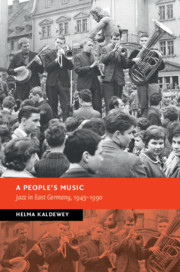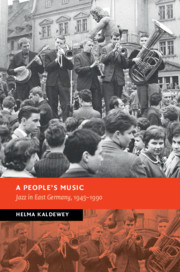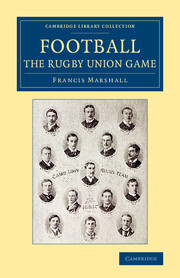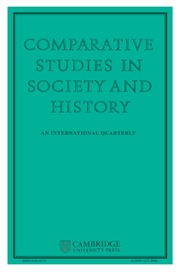The People's Game
Sport in East Germany is commonly associated with the systematic doping that helped to make the country an Olympic superpower. Football played little part in this controversial story. Yet, as a hugely popular activity that was deeply entwined in the social fabric, it exerted an influence that few institutions or pursuits could match. The People's Game examines the history of football from the interrelated perspectives of star players, fans, and ordinary citizens who played for fun. Using archival sources and interviews, it reveals football's fluid role in preserving and challenging communist hegemony. By repeatedly emphasising that GDR football was part of an international story, for example, through analysis of the 1974 World Cup finals, Alan McDougall shows how sport transcended the Iron Curtain. Through a study of the mass protests against the Stasi team, BFC, during the 1980s, he reveals football's role in foreshadowing the downfall of communism.
- Demonstrates the much underrated role played by football in foreshadowing and shaping political change in the GDR, and how sport contributed to undermining the East German dictatorship
- The first comprehensive history of East German football to cover the experiences of elite footballers, fans, and recreational players
- Uses a comparative framework, placing the GDR's football history in the context of the Cold War, cultural exchange and the wider modernisation of European societies after 1945
Reviews & endorsements
'A lively and informative history of football in the GDR from the bottom up. By employing Germany's most popular sport as a lens through which to understand the complex workings of power and people, everyday life and culture under the East German dictatorship, McDougall masterfully demonstrates the value of sport for the modern historian.' Kay Schiller, University of Durham
'Football may have played little part in making East Germany a European sporting superpower but as Alan McDougall explains in this splendid new book there was a voluntarist ethos to the game that made it dynamic at both regional and national levels. Football mattered because it was popular and it was popular because it mattered. This is the best account of football behind the Iron Curtain since Robert Edelman, written with clarity, style and wit.' Tony Mason, De Montfort University
'If Olympic sport was the GDR's perfect child, football was its unruly but ever popular sibling. In this extensively researched, stylishly written and highly accessible survey, McDougall has provided an English-speaking audience with its first full-scale account of the people's game in East Germany. The result is an excellent and essential contribution to our understanding of GDR society and the peculiarities of football in the wider transnational context of Cold War sport.' Christopher Young, University of Cambridge
'… represents an excellent example of research using football to illustrate the colourful ambiguities of everyday life in the GDR.' David Brentin, Central Europe Journal
Product details
August 2014Hardback
9781107052031
374 pages
235 × 157 × 20 mm
0.73kg
20 b/w illus. 1 map
Available
Table of Contents
- 1. Introduction
- 2. Football reconstructed
- Part I. Players:
- 3. Footballers' lives
- 4. The national team
- 5. Club football at home and away
- 6. Football and the Stasi
- Part II. Fans:
- 7. Spectatorship in the Ulbricht era
- 8. Fan culture in the Honecker era
- 9. The 'wild East': hooliganism in the GDR
- 10. 'Crooked champions': the BFC problem
- Part III. The People's Game:
- 11. Football and everyday life
- 12. Women's football
- 13. East plays West: amateur matches across the Iron Curtain
- 14. Football for all? The provision of facilities
- 15. Conclusion
- Bibliography
- Index.









